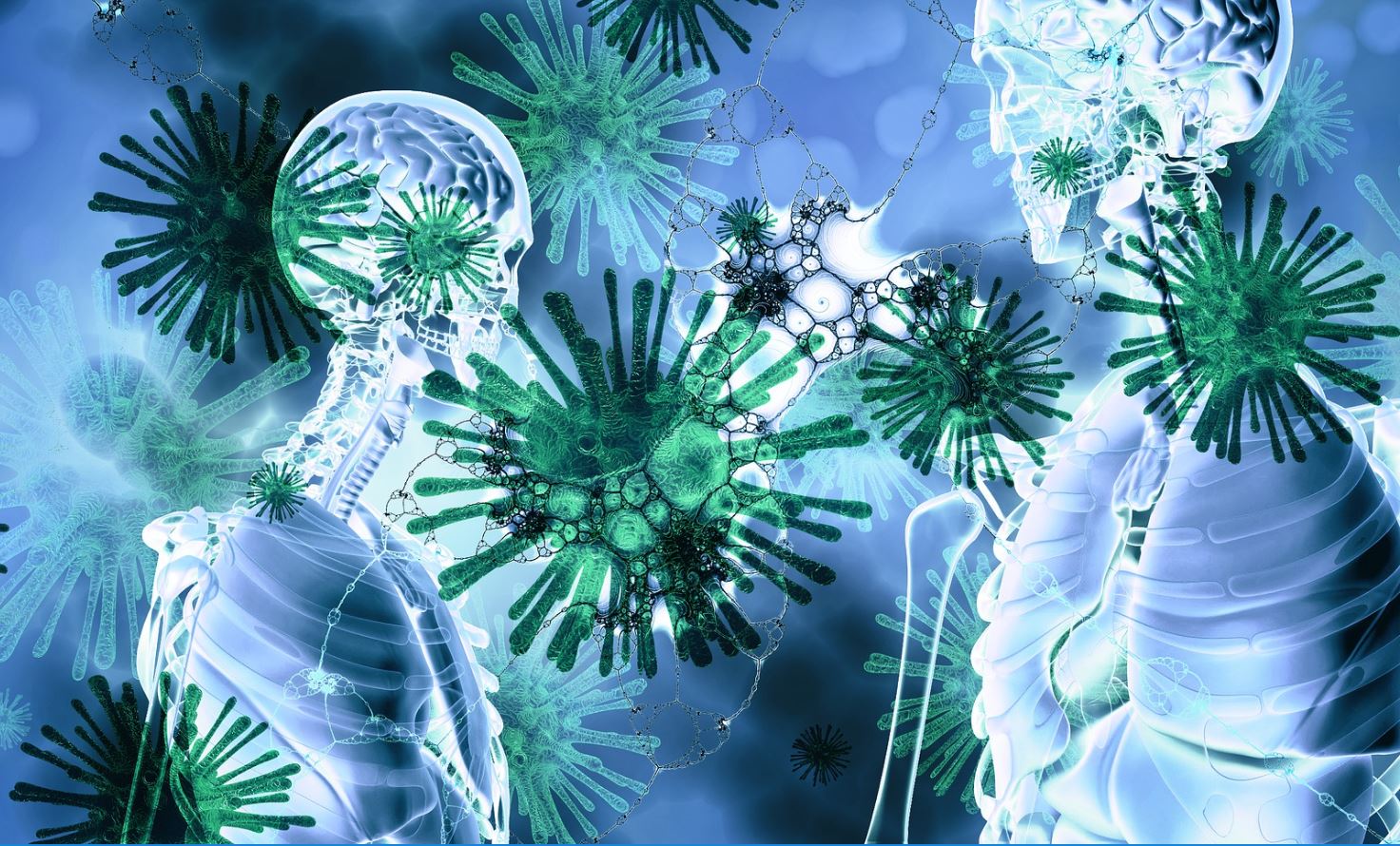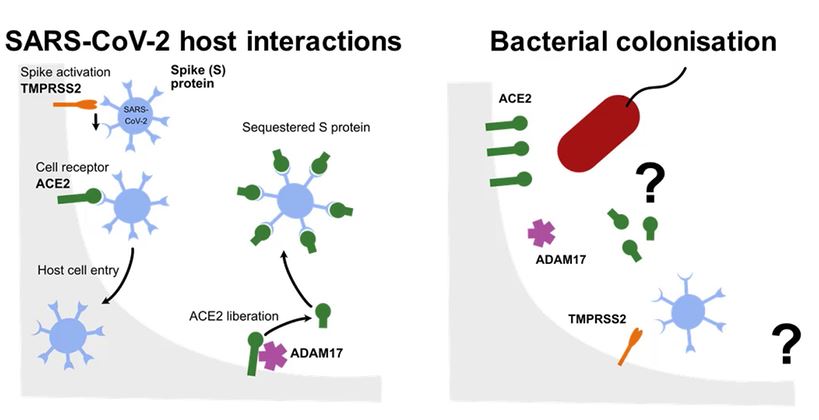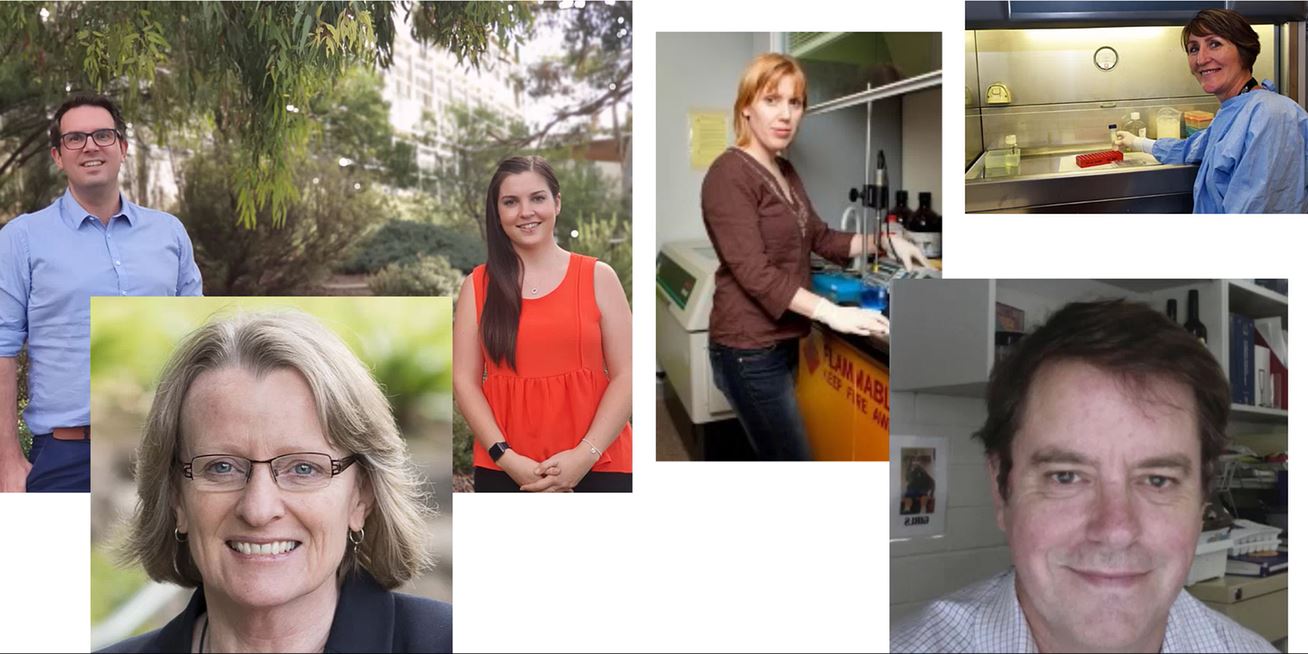
Acute Respiratory Distress Syndrome in patients with COVID-19 can lead to death but more than 50% of these cases are associated with co-infection with bacterial pathogens.
A new investigation at Flinders University, funded under the new University's COVID-19 Research Grant scheme, is looking at why the presence of bacterial pathogens seems to predispose individuals to severe COVID-19.
The research is seeking to reduce the rising toll by focusing on the role of bacterial infection before infection with the SARS-CoV-2 virus - and what impact these pathogens have on respiratory failure.
Lead researcher Dr Bart Eijkelkamp's Bacterial Host Adaptation Research Laboratory and medical experts at Flinders aim to connect respiratory tract bacterial colonisation with COVID-19 outcomes in the community.
"Patients with pre-existing respiratory disease, which often includes an elevated presence of bacteria in the nose, throat and lungs, are among those with the highest COVID-19 death rates," says Dr Eijkelkamp, a lecturer in microbiology.
"This research will help us define the importance of tracking and treating bacterial infection in susceptible populations such as the elderly and immune compromised to prevent the onset of life-threatening COVID-19."
Dr Eijkelkamp says the research might help to understand why some people's response to the disease is worse than others.
 Protrusions or 'spikes' on the surface of SARS-CoV-2, the virus responsible for COVID-19, are known to interact with receptors on lung cells prior to getting into the cells to cause disease.
Protrusions or 'spikes' on the surface of SARS-CoV-2, the virus responsible for COVID-19, are known to interact with receptors on lung cells prior to getting into the cells to cause disease.
"Our project will examine the impact of various distinct bacterial respiratory pathogens on the abundance of these host receptors that are critical for SARS-CoV-2 to cause disease. A greater abundance of these factors is likely to result in more severe COVID-19 outcomes."
"A person's response to bacterial pathogens are highly specific, and our research will define the propensity for the development of severe COVID-19 when colonised by distinct risk pathogens," says co-investigator Professor Claire Roberts.

Professor Roberts and Associate Professor Robyn Meech, two experts in host receptor proteins, join a multidisciplinary Flinders University team including Dr Eijkelkamp and research associate Felise Adams from the Bacterial Host Adaptation Research Laboratory, and virologist Associate Professor Jill Carr and protein biochemist Dr Timothy Chataway from the College of Medicine and Public Health.
Other new Flinders COVID-19 Research Grant scheme projects led by College of Science and Engineering scientists are:
Professor Howard Fallowfield: Sewage monitoring for COVID-19
Professor Jim Mitchell: Rapid, Accurate and Inexpensive SARS‐CoV‐2 Detection and Quantification
In a related project, Professor Karen Reynolds and other South Australian researchers have launched a face mask tesing facility at Flinders at Tonsley.
Flinders University COVID-19 Research Grant scheme projects are rolling out in the College of Medicine and Public Health, and the College of Nursing and Health Sciences.
The College of Medicine and Public Health projects are led by:
•Professor Jonathan Craig: The global COVID-19-COS Project: establishing core outcomes for trials in people with confirmed and suspected COVID-19
•Professor Jonathan Gleadle: Identification of SARS-CoV-2 virally encoded microRNAs as a novel diagnostic tool for COVID-19
•Professor Claire Roberts: The Renin Angiotensin Aldosterone System (RAAS) in Hypertensive Patients with COVID-19
•Professor Geraint Rogers: Precision antibiotic strategies to reduce duration of invasive mechanical ventilation and mortality in COVID-19 patients
•Professor Justine Smith: Drugging Transcription of the Novel Coronavirus Receptor
•Associate Professor Anand Ganesan: 3D Printed Facial Guards to Reduce Leak from P2/N95 respirators
•Associate Professor Tina Noutsos: The ASCOT Trial – Darwin
•Dr JingJing Wang: Identification of high affinity serum antibodies to SARS-CoV-2 in COVID-19 patients






